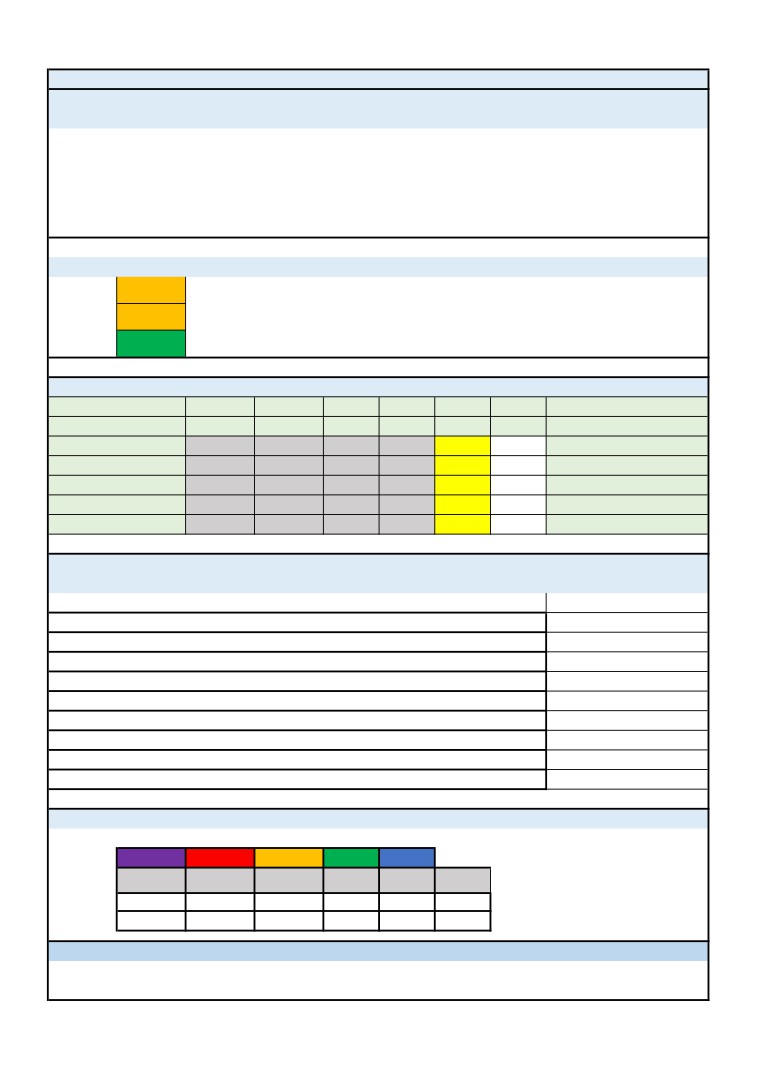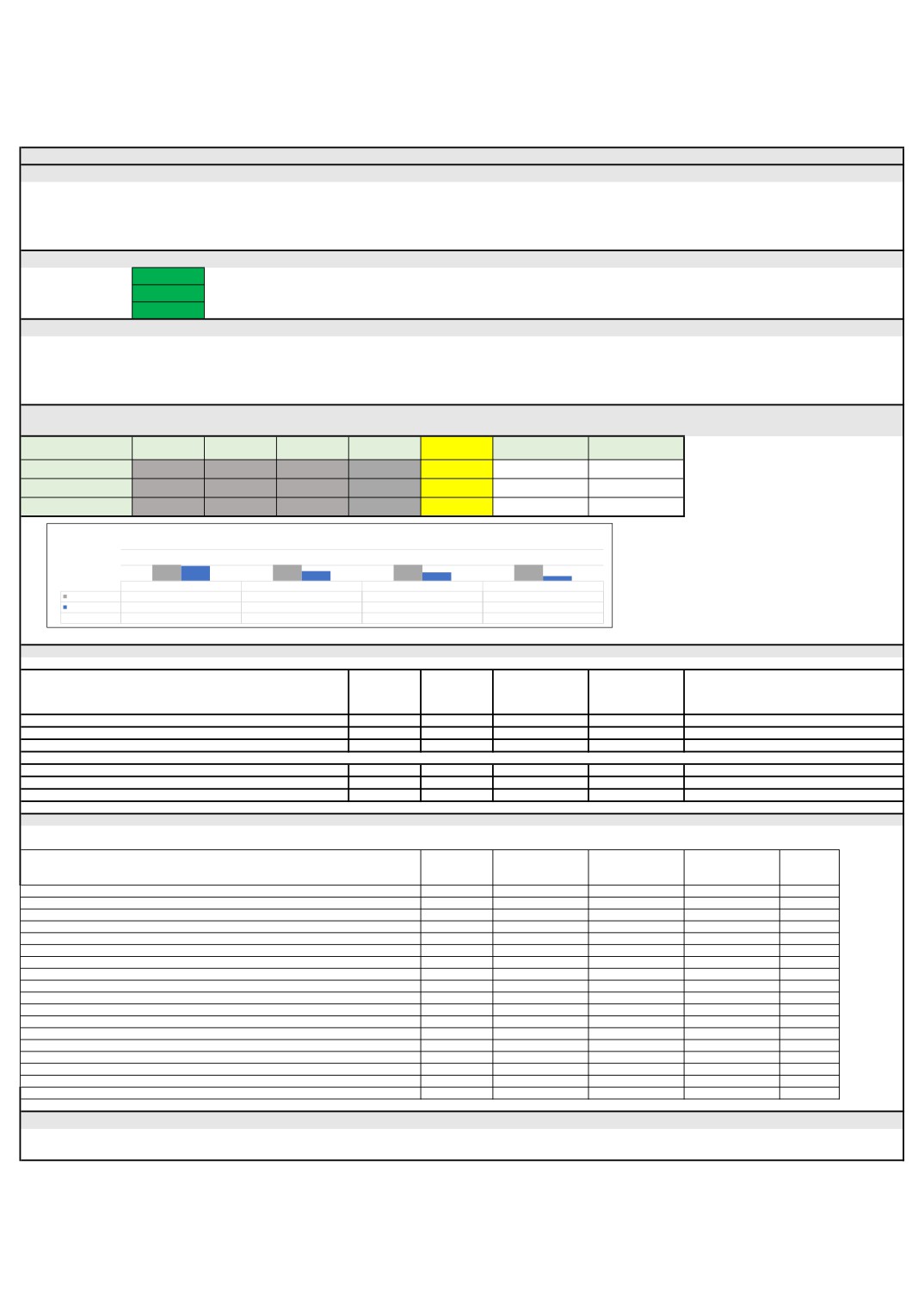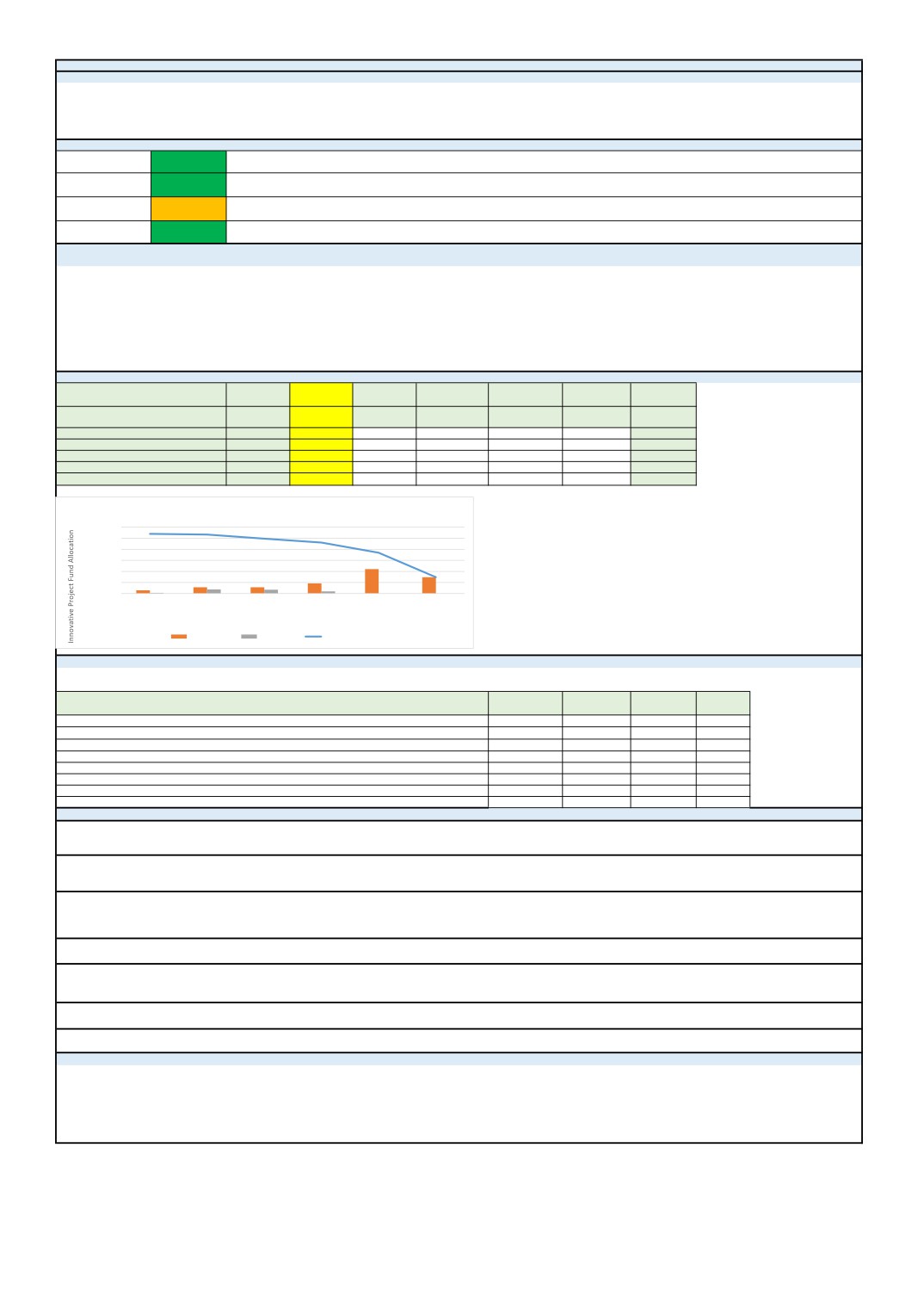New Anglia LEP Investment Appraisal Committee
Wednesday 25 March 2020
Telephone meeting
9am to 9:45am
Dial: 03300 945 940
Room Number: 97100205 #
PIN: 6666 #
Agenda
No.
Item
1.
Welcome
2.
Apologies
3.
Declarations of Interest
4.
Minutes of previous meeting- 29 January 2020
5.
Horizon Paper- Confidential
Reporting: Growing Places Fund
6.
Growing Places Fund Programme Performance Report
6a
Growing Places Fund Programme RAG rating - Confidential
Reporting: Growing Business Fund
7.
Growing Business Fund Programme Performance Report and appendices
Reporting: Innovative Projects Fund
8.
Innovative Projects Fund Programme Performance Report
Items for Approval
9.
Growing Places Fund grant application - Wolsey Theatre, Ipswich
10.
Growing Places Fund grant application-St Peters Church, Sudbury - Confidential
Growing Places Fund Investment
- Food Innovation Centre, Honingham -
11.
Confidential
Innovative Projects Fund - Tender Approval for the Culture Drives Growth
12.
Project.
Other
13.
Any Other Business
1
Committee Members
Lindsey Rix
Aviva
Cllr David
Ipswich Borough Council
Ellesmere
Andrew Proctor
Norfolk County Council
Sandy Ruddock
Scarlett and Mustard
Alan Waters
Norwich City Council
Tim Whitley
BT
Dominic Keen
High Growth Robotics
Martin Williams
Exec Members
Rosanne Wijnberg
New Anglia LEP
Chris Dashper
New Anglia LEP
Iain Dunnett
New Anglia LEP
Date and time of next meeting: Wednesday 20 May 2020. 9am-9:45am
Venue: Conference Room, The STEM Innovation Campus (West Suffolk College) Western
Way, Bury St Edmunds, IP33 3TB
2
New Anglia Investment Appraisal Committee
Meeting Minutes (Unconfirmed)
29 January 2020
Present:
Committee Members
Alan Waters (AW)
Norwich City Council
Sandy Ruddock (SR)
Scarlett and Mustard
David Ellesmere (DE)
Ipswich Borough Council
Andrew Proctor (AP)
Norfolk County Council
Dominic Keen (DK)
High Growth Robotics
Tim Whitley (TW)
BT
Martin Williams (MW)
(By Phone)
In Attendance
Rosanne Wijnberg (RW)
New Anglia LEP
Chris Dashper (CD)
New Anglia LEP
Iain Dunnett (ID)
New Anglia LEP
ACTIONS
1
Welcome from the Chair
David Ellesmere welcomed everyone to the meeting.
2
Apologies
Apologies were received from Lindsey Rix
3
Declarations of Interest
None
4
Minutes of previous meeting (29 November 2019)
The minutes of the previous meeting were approved by the committee.
5
Growing Places Fund Horizon Paper (Confidential)
Iain Dunnett (ID) took the Horizon paper as read. The pipeline remains positive but projects do continue
to take time to mature sufficiently to require a funding decision by the IAC and/or LEP Board
6
Growing Business Fund Programme Performance Report
6.1
Growing Business Fund Project approvals
6.2
Small Grant Scheme project approvals
The monthly GBF report and accompanying appendices were reviewed by the Committee with no
questions.
CD noted that the GBF scheme remains quiet with few new applications coming forward. A reasonable
pipeline exists but with some technical issues to be resolved, including several requiring planning
permission before being considered for funding.
The SGS programme continues to perform well, with demand for grants of up to £25k remaining strong.
The programme continues to run around one quarter ahead of the forecasts.
Page 1 of 2
7
Innovative Projects Fund Performance Report
The quarterly IPF report was reviewed by the Committee with no questions.
CD provided a brief update on the 2019 IPF round, which had received 37 applications for funding
totalling more than £3m requested. Around 16 projects had been identified as supportable by both the
LEP Executive and the consultants on their initial review in terms of meeting the criteria and objectives of
the programme. The full review and appraisal of projects was underway in line with the timeline of the
projects being considered by the panel in March 2020.
8
Growing Places Fund Grant: L’arche- Confidential
ID presented a paper for a grant of £150k towards a project in Ipswich to support those with disabilities
back into employment.
IAC decision: Support grant request at £150-£200k.
9
Growing Places Fund Loan: Hempnall Housing- Confidential
ID presented the request for a loan for a housing development in Hempnall.
IAC decision: Decline request for loan funding of £1.85m
10
Growing Places Fund: Investment Introductory paper- Confidential
Iain Dunnett presented an introductory paper on a potential investment.
The IAC noted the content of the paper.
11
Any Other Business
None
Page 2 of 2
Item 6 - Growing Places Fund Performance Report
Programme Overview - What is the Growing Places Fund?
• Programme duration under Growth Deal funding: 2015 - 2021.
• Value: £35m. This is the £35m Growing Places Fund element of the Growth Deal. Completed projects date back to previous funding from 2012.
• Invested £22.7 million loan capital in region’s infrastructure, sectors and growth locations. £12.5 million of grants provided to projects demonstrating
significant regional or local economic benefit.
• Contribution to the Economic Strategy: The fund has leveraged £140m of public investment and £147m of private investment, created 1475 new jobs, 468
new homes, created 18,703 square metres of industrial space, provided premises for 112 new businesses to be created, supported 35 capital build projects,
and 6 sector developments in the private and public sector.
What is the Overall Programme Status?
Amber
Loans position
See separate update on MSF.
Amber
Grants position
Recent grant offers all issued, grant payments underway where eligible costs incurred.
Outputs
Green
Output delivery on profile.
achieved
What is our financial position?
Financials (£ millions)
Actual
Actual
Actual
ual/Forecast
Forecast
Forecast
Total
Financial Year
2015/16
2016/17
2017/18
2018/19
2019/20
2020/21
Brought Forward
0.000
0.000
2.729
4.415
1.525
4.980
Repaid
0.000
2.088
1.597
1.031
2.000
6.342
13.058
Gov Allocation
7.967
4.092
2.790
3.720
3.720
6.646
28.935
Spend [Act/Fcst]
-7.967
-3.451
-2.701
-7.641
-2.265
-2.982
-27.007
Carried forward
0.000
2.729
4.415
1.525
4.980
14.986
What is our contribution to the Economic Strategy?
Programme performance to date
Outputs - cumulative from April 2012 to Quarter 3 2019
Actual to date
New homes built
468
New jobs created
1,475
Industrial Space created (m2)
18,703
New businesses created through provision of premises
112
Capital Build projects supported
27
Sector Developments supported
6
Match Funding - Public (£m)
140
Match Funding-Private (£m)
147
Total Match (£m)
287
What is the Project Status?
Current status of all projects.
Overall status
Purple
Red
Amber
Green
Blue
Please see RAG Rating for full project
Pipeline
At risk
Claim stage
Live
Complete
Total
list.
16
1
4
15
22
58
Change
-1
0
1
2
3
What are the next steps?
Continue developing pipeline of future loan applications.
Ensure payback returns contribute to a revolving loan fund development.
10
Growing Business Fund Performance Report - January 2020
Programme Overview - What is the Growing Business Fund?
Launched in April 2013, the Growing Business Fund provides grants for businesses to enable growth, an increase productivity and job creation.
Capital grants between £25,000 and £500,000 are provided at up to 20% of project costs for SMEs, with an enhanced rate for small businesses located in an Assisted Area (until 2021).
Funding for the Growing Business Fund is provided on an annual basis by the LEP's Growth Deal.
The fund is accessed through the New Anglia Growth Hub with Due Diligence undertaken by Finance East and agreed by the monthly GBF panel meetings as required .
What is the overall Programme Status?
Finance
Green
Since the autumn there has been an increase in the number of applications coming forward, these are now being progressed quite quickly to panel
Outputs
Green
Based on recent grant applications, reduced spend and pipeline, the scheme will will only just reach its current targets for the year 2019/20.
Delivery
Green
We now have a healthy pipeline of applications, current projects and historic approvals which will help to ensure that performance picks up in 2020/21.
What are our key updates?
Participant SMEs of the Scale Up New Anglia programme are being offered a range of support including applications to GBF (where appropriate).
This is still the LEP flagship grant scheme with many enquiries, however, due to economic uncertainties, we are seeing requests for funding for smaller less ambitious projects actually submitted.
Due to a slowing down the number and value of applications to panel is reducing, three in October totalling £250,000 and two November £127,000.
Of our 2019/20
£4.121m budget, 16 applications, were carried over to this financial year 14 have been paid and 2 applications have withdrawn.
What is our financial position?
Financials (£ million)
Year
2013 to 2016
2016/2017
2017/2018
2018/2019
2019/2020
2020/2021
Total
Profile Spend (£m)
£12.000
£3.536
£3.050
£5.096
£4.121
£2.790
£30.593
Actual Spend (£m)
£11.999
£3.001
£3.049
£4.764
£2.463
£25.276
Remaining Spend (£m)
£0.001
£0.535
£0.001
£0.331
£1.658
£2.790
£5.316
2019/2020 Expenditure Profile
2
1
0
Q1-19/20
Q2-19/20
Q3-19/20
Q4-19/20
Quarterly Forecast
£1.030
£1.030
£1.030
£1.030
Quarterly Spend
£0.963
£0.631
£0.554
£0.315
Variance
£0.067
£0.399
£0.476
£0.715
What is our contribution to the Economic Strategy?
Actual to end of
Outputs April 2019 to March 2020
Target
Monthly Change
Shortfall
Notes
January 2020
Value of grants approved
£4,121,000
£1,113,953
£0
£3,007,047
Value of private sector match approved
£16,484,000
£5,171,160
£0
£11,312,840
Number of New Jobs to be Created
206
72
0
135
Value of grants claimed
£4,121,000
£2,462,739
£314,910
£1,658,261
Private sector match funding drawn down
£16,484,000
£11,091,136
£1,852,055
£5,392,864
Number of New Jobs Created
206
190
25
16
What is the project status?
The following table shows grants approved by sector since the start of the programme in 2013/14
Number of
Projects
Grants
Private
Total Project
Jobs to be
Sector
Approved
Approved
Match
Costs
Created
A - Agriculture, Forestry and Fishing
3
£
235,899
£
1,018,543
£
1,254,442
58.0
B - Mining and Quarrying
1
£
100,000
£
1,654,600
£
1,754,600
10.0
C - Manufacturing
129
£
14,300,026
£
92,094,168
£
106,394,194
1556.5
E - Water supply, sewerage, waste management and remediation activities
4
£
274,000
£
1,174,000
£
1,448,000
26.0
F - Construction
16
£
1,136,486
£
5,514,740
£
6,651,226
144.5
G - Wholesale and retail trade; repair of motor vehicles and motorcycles
26
£
2,829,816
£
52,382,892
£
55,212,708
386.0
H - Transportation and Storage
8
£
666,992
£
3,275,957
£
3,942,949
90.0
I - Accommodation and Food Service Activities
5
£
372,000
£
2,342,138
£
2,714,138
45.5
J - Information and Communication
10
£
717,700
£
3,537,616
£
4,255,316
74.0
K - Financial and Insurance Activities
1
£
30,000
£
79,425
£
109,425
3.0
L - Real Estate Activities
1
£
100,000
£
232,500
£
345,000
10.0
M - Professional, Scientific and Technical Activities
22
£
2,459,931
£
15,317,782
£
17,777,713
264.6
N - Administrative and Support Service Activities
22
£
2,145,771
£
11,440,136
£
13,585,907
251.0
P - Education
1
£
20,000
£
102,191
£
122,191
4.0
Q - Human Health and Social Work Activities
1
£
31,580
£
126,320
£
157,900
3.5
R - Arts, Entertainment and Recreation
8
£
502,921
£
3,159,776
£
3,662,697
55.5
S - Other Service Activities
2
£
320,000
£
4,737,413
£
5,057,413
32.0
Total
260
£
26,243,122
£
198,190,197
£
224,445,819
3014.1
What are the next steps?
The LEP is working with delivery partners, to ensure that the scheme has a greater focus on business growth and productivity.
As part of the marketing Action Plan a number of case studies have been commissioned and the growth hub website revamped, plus new literature and banners for launched in January 2020.
15
Innovative Projects Fund - 2018 Projects Call
Programme Overview - What is the Innovative Projects Fund
The Innovative Projects Fund is a revenue grant programme that provides funding towards innovative projects to support the delivery of the themes and activities identified in the
Economic and Local Industrial Strategies. The first call of the Innovative Projects Fund was made in October 2018 with a remit to facilitate innovative projects supporting economic
growth and the delivery of the Economic Strategy utilising revenue from the Enterprise Zone Pot C.
What is the Overall Programme Status?
6 out of the 7 projects have signed Offer Letters. All 6 projects with signed Offer Letters are now in the delivery phase and in the process of
Overall:
Green
claiming their allocations.
Delivery:
Green
6 out of 7 projects are now in their delivery phase.
Profiled total spend to the end of Quarter 3 was £100,372. Actual total spend to the end of the Quarter 3 was £78,754.45. A further £20,000 was
Spend:
Amber
paid to NUA in January 2020 bringing total spend to date to £98,754.45.
Outputs:
Green
No accumulated outputs were forecast by the end of quarter 3.
What are our Key Updates?
•There are now 7 projects under the 2018 call of the Innovative Projects Fund with a combined allocation and commitment of £539,531.
•The value of claims for Quarter 3 was £34,973.83. The Building Supply Chains Project claimed £2,474.38 and the Building the Year-long economy project claimed £32,499.45.
•Profiled Spend to the end of Quarter 3 was £100,372. Actual Spend to the end of Quarter 3 was £78,754.45.
•NUA was paid an upfront amount of £20,000 in early January 2020 for its Connecting Creative Capital Project. This now brings actual spend to date for the IPF to £98,754.45.
•Local Authority match funding of £40,509.62 has been recorded. Private Match Funding of £33,775.35 has been recorded. Total match funding of £74,284.97 has been recorded up
until the end of quarter 3.
•To date, 4 part time jobs have been created, 10 jobs have been safeguarded and 25 businesses have been supported.
•For information, a late claim of £21,876 for Quarter 3 has been submitted by the Cornhill Project and will be paid in Quarter 4.
What is our Financial Position?
Financials (£ million)
Forecast
Actual
Forecast
Forecast
Financial Year
2019/20
2019/20
2020/21
2021/22
Brought Forward
0.000
0.369
0.148
LEP Allocation
0.540
0.540
0.000
0.000
Spend [Act/Fcst]
0.170
0.099
0.221
0.148
Committed
0.170
0.072
0.221
0.148
Carried forward
0.369
0.369
0.148
0.000
2019/20 Expenditure
600,000.00
500,000.00
400,000.00
300,000.00
200,000.00
100,000.00
-
Q1-19/20
Q2-19/20
Q3-19/20
Q4-19/20
20/21
21/22
Axis Title
Qtrly Forecast
Qtrly Claims
Available IPF
What is our contribution to the Economic Strategy?
Quarter/ year:
3 (Oct - Dec) 2019
Programme Target
Outputs - cumulative from April 1st to 31st December 2019 (Quarter 3)
Actual to date
to 2020
Number of Direct Full-Time Jobs Created
0
65
High Value Jobs created
0
59
Number of Jobs Safeguarded
10
60
Number of businesses created
0
12
Number of Businesses Supported (at least 12 hrs of support)
25
94
Number of Learners
0
49
Number of businesses created
0
41
Number of part time jobs created
4
0
What is the Project Delivery Status?
Building Supply Chains - NCC: This project made a claim for Quarter 3 totalling £2,474.38, bringing its total claim to £22,000 (full grant award has now been paid). NCC in partnership
with Vattenfall and the Chambers of Commerce have held a further 2 Supply Chain workshops for local business. The project has provided 25 businesses with at least 10 hours of
support each. Public match funding of £5,298.39 and private match funding of £20,220.35 has been spent to date.
The Ipswich Cornhill Action Plan- Ipswich Central: A late claim of £21,876 has been submitted for Quarter 3 and will be paid in Quarter 4.
Growing the Year-Round Economy - Visit East of England: This project made a combined claim for quarters 1 and 2 totalling £32,499.49. Accommodation and event ticketing has
been now built into the website, VEE is now linking with Greater Anglia, Stenna Line and other transport providers. VEE will now start promoting the new website to the public, promoting
the free listings to businesses and services, and building the business and consumer mailing lists.
The Catapult - The Catapult Network: The project has been delayed pending the appointment of the Innovation Manager for the ORE Catapult. The new post holder, Andy Hoyland
based at Orbis Energy in Lowestoft started on 1st January 2020.
Norfolk & Suffolk Offshore Wind Competitiveness Positioning Programme - GYBC: The project has been delayed somewhat pending the appointment of SCC's Business
Development Manager and the Offshore Wind Marketing Manager. These posts have since been filled (February 2020) The project has incurred some expenditure via Offshore Wind /
promotional events.
Fit for Nuclear - SCC: This project has now met the conditions of the IAC's Innovative Projects Fund Offer. £118,000 has been approved. The project will now be led by West Suffolk
College. The project will commence ASAP after receipt of a signed Offer Letter.
Creating Creative Capital - NUA: This project was re-approved by the IAC in October 2019. The project has submitted a signed offer letter and has claimed £20,000 to kick start the
project.
What are the Next Steps?
A 2019/20 Call of the IPF Programme, with a budget of £1.5million, closed on 20th December 2019. 37 applications were received with a total ask of £3,095,196. The applications have
a total projects value of £6,790,048. The applications have been appraised and shortlisted by external consultants 'Hewdon'. A report highlighting the recommendations for the approval
and rejection of projects will be made available for the IPF Panel on Wednesday 11th March 2020.
The Programmes Case Worker for the IPF Programme is working with Project Leaders of the 2018 project call to ensure claims and associated monitoring reports are received for
Quarter 4.
16
New Anglia Local Enterprise Partnership
Investment Appraisal Committee
Wednesday 25th March 2020
Agenda Item 9
Growing Places Fund: Wolsey Theatre, Ipswich. Grant Application.
Author: Iain Dunnett
Summary
The Wolsey Theatre in Ipswich is currently undergoing a dramatic redesign of its immediate
environment into a much-improved public realm and is upgrading the theatre facilities. The
theatre has applied for a grant of £225,000 from the Growing Places Fund.
Recommendation
The committee is recommended to offer a maximum grant of £225,000 towards the cost of
refurbishment of the New Wolsey Theatre in Ipswich as part of an improved public realm project
in the area. The figure to be reduced to the amount required to complete the total funding
package if all outstanding funding is secured.
Background
The Wolsey Theatre is located on Theatre Square which is a prominent but neglected site on
the north western gateway into Ipswich town centre. Its development provides a genuine
opportunity to reconnect the communities and businesses of the Norwich Rd corridor with the
town centre through the regeneration of what was once a town focal point.
The new development consists of a redesign of Theatre Square, the creation of a new build
community space, and the refurbishment of the New Wolsey Theatre front of house area. This
project represents a £2.85m investment in Ipswich. The project will see an increase in visitors
and participants to the New Wolsey of 14,500 to a total of 112,000 by 2022/3.
It is hoped that the development will facilitate wider interest in the location, much of which is
owned by Charterhouse and has great potential for development as residential, workspaces,
and car parking. The scheme is the first phase of development plans for a strategically
important area of central Ipswich.
The partnership behind this development consists of Charterhouse PLC / Peter de Savary, Arts
Council England, Ipswich Borough Council and the New Wolsey Theatre.
The development of the New Wolsey Theatre and its environs represents a significant
contribution to the Culture Drives Growth 2016-22 Cultural Strategy developed by the LEPs
Cultural Sector Board.
Key Financial Considerations
Costs and funding sources
The total cost of the scheme is £2.85 million, and the applicant is seeking a £225,000
grant from the LEP.
Confirmed Funds
•
£2.1 million support from Charterhouse PLC
•
£395,000 support from Arts Council England
•
£5,000 support from Ipswich Borough Council
• Secured Funds to date total - £2,500,000
Yet to be secured
• Suffolk County Council - £30,000
• Theatre Staff fundraising - £20,000
• Garfield Weston Foundation - £30,000
• Clore Duffield Foundation - £30,000
• Bradbury Foundation £20,000
• Wolfson Foundation £20,000
• Remaining to raise (including this bid) - £375,000
Sustainability - The Wolsey is currently well supported through Arts Council England as a
National Performing Organisation (NPO). Alongside this Ipswich Borough Council and Suffolk
County Council commit revenue funding support for the theatre. This is in addition to revenue
created by performances at the theatre
LEP intervention - The public private collaboration expressed by this development is fertile
ground for the use of LEP funding. The development is consistent with other similar projects
supported by the LEP such as the National Writers Centre in Norwich and the Newmarket
Home of Horse Racing.
Eligibility for LEP support - The development is eligible for a grant from the Growing Places
Fund. The organisation is a registered charity and is legally constituted so that it can receive
funds from the LEP.
State aid - A grant would be compliant under State Aid General Block Exemption Regulation
53 (Aid for Culture and Heritage Conservation).
Timeline - The public realm development is currently underway and the theatre refurbishment
will proceed from mid-2020 and be completed by the end of the year.
Link to the LEPs Economic Strategy and Local Industrial Strategy
The development is located in a “LEP priority place” and the sector focus is ‘digital creative’ and
‘creative and cultural industries’.
Outcomes
•
2022/23 - The scheme will deliver 5 FTE direct jobs.
•
2022/23 - Resident associate performing companies will create a further 15 indirect
FTEs.
•
2020-23 - 9 apprenticeships and 30 technical theatre traineeships.
2023-27 - 15 apprenticeships and 60 traineeships.
• This scheme provides associated creative companies with space that will enable them
to grow their programmes of work and increase their turnover.
• The development will build on the successful Start East business support programme,
which supported over 350 creative enterprises over 3 years.
• The project will see an increase in visitors and participants to the New Wolsey of 14,500
to a total of 112,000 by 2022/3.
Risks
The overarching key risks are;
• Without funding from the New Anglia LEP this project may fail to secure the level of
funding required for the project which may see the refurbishment of the theatre and the
completion of the wider scheme slowed in its delivery.
• New Wolsey will continue to operate at its current levels of activity taking longer to
realise its full potential.
• Failure to secure identified grants and other funding sources leading to halted or slower
project development.
• Unsustainable running costs.
Recommendation
The committee is recommended to offer a maximum grant of £225,000 towards the cost of
refurbishment of the New Wolsey Theatre in Ipswich as part of an improved public realm project
in the area. The figure to be reduced to the amount required to complete the total funding
package if all outstanding funding is secured.
New Anglia Local Enterprise Investment Appraisal Committee
25th March 2020
Agenda Item 12
Innovative Projects Fund - Tender Approval for Culture Drives Growth Project.
Author: Tanya Nelson
Summary:
On 11th March the Suffolk County Council led project ‘Culture Drives Growth’ was awarded
£15,000 from the 2019 call of the Innovative Projects Fund subject to the approval of the
Consultant Tender Brief by the IAC on 25th March 2020. The Brief is herewith attached as
Appendix 1 to this paper.
Recommendation:
The Committee is recommended to approve the Tender Brief for the appointment of
consultants for the ‘Culture Drives Growth Project, attached as Appendix 1 to this paper.
Background:
On 11th March 2020, the Innovative Projects Fund Panel considered 38 applications that came
in through the 2019 Call of the Innovative Projects Fund. At this meeting 18 projects were
approved, and 4 projects were deferred for potential underspend from the 2019 programme
(pending further development). The remaining 16 projects were rejected as unsupportable.
One of the approved projects, the ‘Culture Drives Growth Project’ was supportable for a
reduced offer of £15,000 to match the cash contribution from the Arts Council England. The
award was subject to the following conditions:
1.
That the consultants chosen to lead the study are appointed through a suitable
open tender process.
2.
Confirmation that the match funding from the Arts Council England is in place and
details of how the ‘support in kind’ will be evidenced.
3.
That the Investment Appraisal Committee approve the Tender Brief for the
appointment of consultants prior to its publication at its meeting on 25th
March (to meet the project’s timeframe for delivery).
31
The Innovative Projects Fund Panel understood that the grant awarded was less than the
requested amount and discussed options as to how the project might proceed going
forward. These options included; identifying another source of funding to meet the shortfall,
reducing the scope of the project and/or identifying consultants to undertake the study at a
reduced rate.
The Culture Board needs to buy in capacity and external expertise to develop a ‘future-proof’
operating structure and a comprehensive strategic plan to drive continued culture-led growth.
The Culture Board want to work with a consultant team to:
• Develop a sustainable Culture Board, to drive growth.
• Create an economic data pack to inform and measure the work delivered by partners.
• Refresh the Strategy, establishing a ten-year vision, with a comprehensive delivery plan,
reflecting their role in placemaking, inward investment, skills and inclusive growth.
• Build on the success of the StartEast project.
Following feedback from the IPF Panel, the Culture Board agreed to reduce the scope of the
project as outlined below:
• Remove the requirement for the data pack to be Open Source - this is an expensive
exercise.
• Remove the requirement for the data pack to have an ongoing management plan.
Instead the board will require that the metrics used are shared so that if they wish to
continue to update them they can.
• Remove the requirement to secure funding for StartEast Phase 2 and to submit and
prepare 5 bids. This will be replaced with the development of a suite of tools to attract
funding.
The reduced scope of the project is reflected in the ‘Culture Drives Growth’ Consultant
Tender Brief attached as Appendix 1.
The Culture Board has been planning a full and open tender process in line with SCC
Procurement. The Culture Board plan for the tender to go live on 26th March.
The Project Lead has confirmed that the Arts Council England Funding is in place and a copy
of the Offer Letter has been received by the Programmes Team Caseworker at New Anglia
LEP. The Programmes Team is satisfied that the ‘evidence in kind’ will be provided to an
acceptable standard.
Recommendation:
The Committee is recommended to approve the Tender Brief for the appointment of
consultants for the ‘Culture Drives Growth Project, attached as Appendix 1 to this paper.
32
Culture Drives Growth
Specification
Suffolk County Council, on behalf of New Anglia LEP Culture Board
1. Introduction
The New Anglia LEP Culture Board works collaboratively to build the cultural economy in the East. The Board
provides a focus for decision making and leadership regarding cultural issues, opportunities, strategies,
programmes and projects.
The Board started in 2011 and has successfully developed and delivered a range of initiatives including Look
Sideways East - building cultural tourism ( 2014 - 2020), StartEast - building the cultural economy (2016 - 2019) and
Collaboration, Place Change - transforming leadership (2020 - 2022).
1.1. We are seeking to commission a team of experienced consultants to work with us to:
a) Review the purpose, efficiency and effectiveness of the New Anglia LEP Culture Board and to prepare
options for its development over the next ten years.
b) Create an economic data pack to inform and measure the Culture Board’s work and to demonstrate to
partners and current and potential stake holders the impact of the cultural sector on growth, including
inclusive growth, in Norfolk and Suffolk.
c) Refresh our Strategy, Culture Drives Growth, establishing a new ten-year vision, with a comprehensive
delivery plan, reflecting our role in placemaking, inward investment, skills and inclusive growth.
d) Build on the success of StartEast and develop a comprehensive programme of cultural and creative
enterprise development.
2. Procurement and management
SCC is procuring this contract on behalf of the New Anglia LEP Culture Board. This contract will be managed by SCC,
overseen by the Chair of the Board and the Board’s Project Reference Group and will report to the New Anglia LEP
Culture Board.
The Specification requires that any digital tools, databases, intellectual property, or networks developed under this
contract will be the property of Suffolk County Council to support culturally driven growth.
3. Scope & Requirement
It is expected that this contract will be delivered within 9 months from 1st June 2020 to February 28th, 2021.
The total contract value is £45,000.
The Specification has three overlapping, integrated tracks as follows:
3.1 Track 1 - Board Development
The Contractor will be responsible for working with our nationally celebrated, pioneering Board to review its
operations and governance and support it to become increasingly sustainable. The minimum requirement is set out
here.
The Contractor is required to work with the Board to:
a) Establish and undertake a full and open ‘360 review ‘of the Culture Board.
b) Bring examples of effective collaborative networks to the Board’s attention to inform its collective knowledge
and decision making.
c) Explore options for stake holder and cross sector, collaborative partnerships.
33
d) Create options for the development of a sustainable Board, including governance and management.
e) Shape up detailed implementation plans for any agreed change.
f) Support and guide the Board through the full implementation of any operational changes including drafting
governance documents and transparent recruiting of Board members and office holders.
4.2 Track 2 Data pack
The Contractor will be responsible for developing an economic data pack to inform and measure the Culture Board’s
work and to demonstrate to partners and current and potential stake holders the impact of the cultural sector on
growth, including inclusive growth, in Norfolk and Suffolk. This is needed to measure and make the case for effective
culture led growth. The minimum requirement is set out here.
The Contractor is required to work with the Board to:
a) Create a data pack to demonstrate to key decision makers and external funders the impact, role and value of
culture as a driver for inclusive growth - both in absolute terms but also for the value that it adds to the
identity of the region and inward investment.
b) Design the pack to ensure it is respected by local authorities, the LEP, possible funders and stake holders, FE
and HE.
c) Design the pack so that data can identified at Town, District, County and Regional (Norfolk & Suffolk) level.
d) Establish and collect base line data on the value of the cultural economy, including jobs, no. of businesses,
inward investment, visitor economy, entrepreneurship, health and wellbeing and inclusive growth.
e) Gather the data to demonstrate the relationship and value of culture to the creative industries, HE & FE,
tourism, tech and inward investment.
f) Develop indicative measures for the relationship between culture, place and growth.
g) Develop specific inclusive growth indicators - showing the social value of the cultural economy.
h) Develop an evaluation framework to enable ongoing analysis of the role of culture in growth.
i)
Share the metrics and tools used in assessing impact to enable the culture board to update as required.
4.3 Track 3 - Strategy review & development
The Contractor will be responsible for reviewing the Culture Board’s current strategy, Culture Drives Growth and
developing an ambitious, informed, measurable, coordinated strategy to deliver culture driven growth in the East
over the next ten years. The minimum requirement is set out here.
The Contractor is required to:
a) Re-fresh Culture Drives Growth, in the context of the Board Development and Data Pack, developing a new 10-
year vison and plan for the Board.
b) Align the plan with the LEP's Economic Strategy, Skills Plans, Industrial Strategy; Arts Council England Strategy
2020-2030 and Local Authority Priorities.
c) Work with the Board to develop a shared investment prospectus with Arts Council and National Lottery
Heritage.
d) Embed the principles of inclusive growth.
e) Open a dialogue with potential stake holders, funders and investors to ensure that the plan is both ambitious
and viable.
f) Develop detailed delivery plans for 2021 - 2024, indicative plans for 25 - 28, and headlines for 2029 - 2031.
g) Scope and establish ambitious commitments to inclusive growth, the five foundations for increasing
productivity, and the four national challenges set out in Industrial Strategies.
h) Develop plans that focus on ‘place’, and are linked to place specific change programmes, including Future High
Street, Heritage Action Zones and Town Development Fund.
i)
Develop work on cultural tourism, linked to ambitions for the East to become a 'Tourism Zone', align with plans
for enterprise development.
34
j)
Identify clear links and options for collaborative working with creative industries, HE & FE, tourism, tech
development, inward investment and place.
k) Use the Culture Board data pack to set a baseline, targets and an evaluation framework.
l)
Develop a detailed income and expenditure budget for delivering the plan.
4.4 Track 4 - Enterprise Development
The contractor will be responsible for developing a collaborative approach to cultural and creative enterprise. The
minimum requirement is set out here.
The Contractor is required to:
a) Use evaluation of StartEast and other creative and cultural enterprise projects to open a dialogue with the Board
on the impact and value of a range of interventions including provision of space, advice, investment and
learning.
b) Establish a clear relationship with the Growth Hub and other key enterprise development agencies, FE & HE,
local, regional and national, ensuring these are complimentary and that there is no duplication.
c) Develop plans for addressing the ongoing needs of StartEast and other cultural and creative enterprises,
specifically those with potential for significant growth.
d) Develop plans for addressing 'geographic cold spots' where StartEast did not make an impact; focus on
Lowestoft, Great Yarmouth, Kings Lynn and Bury St Edmunds.
e) Explore options on plans for enterprise development work within established cultural SMEs.
f) Consider opportunities for supporting the development of creative industries.
g) Use the Culture Board data pack to set a baseline, targets and an evaluation framework.
h) Identify additional sources of investment that are in the pipeline, - including ACE, DCMS industrial strategy, LEP
Growing Places, Cultural Development Fund, Prosperity funding, the Towns Fund and investment in Skills.
i)
Prepare a suite of materials to enable the submission of bids for up to five different funders.
j)
Develop a five-year programme and a detailed income and expenditure budget.
5. Performance requirements:
5.1 All work must:
a) Be delivered on time and on budget.
b) Be delivered with skill, diplomacy and respect for collaborative, consensual working.
c) Be delivered without administrative support from the Board or Norfolk and Suffolk County Councils
d) Be explored and tested with partners, stake holders and potential clients.
e) Reflect the values of inclusive growth.
f) Have ongoing, effective evaluation.
5.2 The supplier is required to:
a) Report to the day to day manager of the Contract - SCC Arts Development Manager, Jayne Knight
b) Establish an ongoing dialogue about the development of the work with the Chair of the Board, Helen Wilson
c) Discuss the development of the work, including issues and challenges, in detail with the Project Reference
Group.
d) Present full progress reports to the New Anglia LEP Culture Board.
6. Attachments/weblinks:
a) Project delivery plan and milestones.
b) Membership of the Culture Board and Project Reference Group
c) Culture Drives Growth
d) New Anglia LEP Culture and Creative Industries Sector Skills Plans
e) Evaluation StartEast
f) Evaluation, Phase 1 Look Sideways East
35
g) New Anglia LEP Economic Strategy
h) New Anglia LEP Industrial Strategy
Written Response:
Method Statement 1 - Culture Board Review and Development (20%)
Word Limit 2000
Bidders are required to produce a method statement describing their approach to reviewing and
developing the Culture Board.
This should include but not be limited to, how you will work with the Board to:
a) Establish a 360 view of the Board’s operations and performance in a local,
regional and national context.
b) The importance of stake holder and cross sector, collaborative partnerships.
c) Create options for the development of a sustainable Board, including governance
and management.
d) Develop an agreed, detailed implementation plan.
e) Complete any new governance documents and procedures.
f) Coordinate this work.
Your Method Statement for the Culture Board Review and Development should demonstrate:
• Clear evidence of experience of working with cross sector partnership groups in a
collaborative and outcome focused manner;
• Direct, up to date knowledge of the cultural sector and the key people working within it,
regionally and nationally;
• Direct, up to date knowledge of the cultural sector’s role in the growth agenda and the
key people working in this area, regionally and nationally.
• The knowledge, skills and contacts to add significant value and challenge to a high level,
nationally significant cultural collaborative focussed on growth.
• Who will be lead and deliver this work.
Method Statement 2 -Economic Data Pack (20%)
Word Limit 2000
Bidders are required to produce a method statement describing their approach to creating, an
economic data pack to support, inform and measure culturally driven growth in the East.
This should include but not be limited to how you will work with the Board to:
a) Scope the parameters of the data pack.
b) Clearly identify the users of the data and their needs.
c) Create the data pack, this should include whether this would be sub contracted
or developed by the supplier.
d) Embed the principles of inclusive and sustainable growth into the data pack.
e) Establish and collect base line and bench marking data on the value of the
cultural economy.
f) Develop specific inclusive growth indicators - showing the social value of the
cultural economy.,
g) Develop an evaluation framework to enable ongoing analysis of the role of
culture in growth.
h) Share the metrics and tools used in assessing impact to enable the culture board
to update as required.
Your Method Statement for the Economic Data Pack should demonstrate:
• Understanding of the principles of inclusive and sustainable growth.
• Clear evidence of experience in commissioning or developing and managing a
comprehensive and effective economic data packs.
• Clear evidence of experience in commissioning or developing data packs
• Who will lead and deliver this work.
36
Method Statement 3 - Strategy Refresh & Development (20%)
Word Limit 2000
Bidders are required to produce a method statement describing their approach to refreshing and
developing our strategy, Culture Drives Growth.
This should include but not be limited to how you will work with the Board to:
a) Re-fresh Culture Drives Growth, in the context of the Board Development and
Data Pack, developing a new 10-year vison and plan for the Board.
b) Align the plan with the LEP's Economic Strategy, Skills Plans, Industrial Strategy;
Arts Council England Strategy 2020-2030 and Local Authority Priorities.
c) Develop a shared investment prospectus with Arts Council and National Lottery
Heritage.
d) Open a dialogue with potential stake holders, funders and investors to ensure
that the plan is both ambitious and viable.
e) Identify opportunities for collaboration on place specific change programmes,
such as Future High Street, Heritage Action Zones and Town Development Fund.
f) Embed and measure the principles of inclusive and sustainable growth into the
plans.
g) Develop detailed delivery plans for 2021 - 2024, indicative plans for 25 - 28, and
headlines for 2029 - 2031.
h) Use the Culture Board data pack to set a baseline, targets and an evaluation
framework.
Your Method Statement for Strategy Refresh & Development should demonstrate:
• Evidence of experience in developing and/or refreshing strategies with the cultural sector
which go on to deliver meaningful outcomes
• Evidence of effective collaboration with a broad range of cultural stakeholders to achieve
a mutually beneficial outcome
• Evidence of developing shared investment plans.
• Understanding of the principles of culture’s role in inclusive growth
• Understanding of the barriers to inclusive growth
• Direct, up to date knowledge of the cultural sector and the key people working within it,
regionally and nationally;
• Direct, up to date knowledge of the cultural sector’s role in the growth agenda and the
key people working in this area, regionally and nationally.
• The knowledge, skills and contacts to add significant value and challenge to a high level,
nationally significant cultural collaborative focussed on growth.
• Who will lead and deliver this work.
Method Statement 4 - Building Cultural & Creative Enterprise (20%)
Word Limit 2000
Bidders are required to produce a method statement describing their approach to building our
work in cultural and creative enterprise in the East.
This should include but not be limited to how you will work with the Board to:
a) Use the evaluation of StartEast and other creative and cultural enterprise
projects to understand the impact and value of a range of public interventions
including provision of space, advice, investment and learning.
b) Establish clarity on relationships with the Growth Hub and other key enterprise
development agencies, local, regional and national.
37
c) Develop plans for addressing the ongoing needs of StartEast and other cultural
and creative enterprises, specifically those with potential for significant growth.
d) Develop plans for addressing 'geographic cold spots' where StartEast did not
make an impact.
e) Consider the need for enterprise development work within established cultural
SMEs.
f) Consider opportunities for supporting the development of creative industries.
g) Use the Culture Board data pack to set a baseline, targets and an evaluation
framework.
h) Identify additional sources of investment that are in the pipeline, - including
ACE, DCMS industrial strategy, LEP Growing Places, Cultural Development Fund,
Prosperity funding, the Towns Fund and investment in Skills.
i)
Prepare a suite of materials to enable the submission of bids for up to five
different funders.
j)
Develop a five-year programme and a detailed income and expenditure budget
for this work.
Your Method Statement for Building Cultural & Creative Enterprise should demonstrate:
• Understanding of the challenges and opportunities facing cultural and creative enterprises
in the East of England.
• Evidence of a detailed understanding of the cultural geography of the East of England
• Evidence of a detailed understanding of the public interventions that support growth in
the cultural and creative sectors.
• Evidence of a clear understanding of social enterprise.
• Who will lead and deliver this work.
Method Statement 5 - Budget (5%)
Bidders are required to produce a detailed budget, showing how the contract fee of £60,000 will
be applied to delivering the requirement.
Finance
Template.xlsx
Your method statement for Budget should also include but not be limited to:
a) A description of internal financial management systems and processes;
b) A description of the Social Value benefits your organisation will bring over and above the
requirements of the Specification. This could include areas such as:
o
Promoting skills and employment;
o
Supporting the growth of responsible regional businesses;
o
Creating healthier, safer, and more resilient communities;
o
Protecting and improving the environment;
o
Promoting social innovation
Your Method Statement for Budget should:
• Demonstrate robust financial management
• Evidence of how you will bring additional value including Social, Economic and
Environmental benefits (as defined in the Social Value Act 2012)
Method Statement 6 - Project Plan (15%)
Bidders are required to produce a method statement describing their approach to ensure the
project is delivered in accordance with the requirements of the Specification. This should include
a detailed timeline showing milestones and completion dates.
38
Your Project Plan Method Statement should:
• Give confidence in your ability to deliver the project fully in accordance with our
requirements;
• Demonstrate an ability to manage multiple workstreams
• Show an understanding of the interconnectivity of multiple workstreams.
• Demonstrate that this work will be carried out with no administrative support from the
New Anglia LEP Culture Board or Suffolk County Council.
Interviews
The top 5 bidders will be invited to an interview by a panel of representatives of the New Anglia LEP Culture Board.
The interview will be an opportunity to discuss the details of bidder’s proposals. If the contract is going to be
delivered by a team, we expect all team members take part. The interviews will be held on May 5th, 2020 in Ipswich.
Bidders will be asked to:
• Deliver a 10-minute presentation on:
What experience, knowledge, networks and skills do you have in the culture and creative sectors?
How will use and apply this to add significant value and challenge to a high level, nationally significant cultural
collaborative focussed on growth?
•
Bidders will be asked to answer the following questions, answers need to be a maximum of five minutes
and must include reference to delivery of previous contracts.
1.
How will you work with the Culture Board and its stakeholders to establish an effective and efficient Culture
Board that drives inclusive growth in the East in the short to medium term?
2.
How will you develop or commission a data pack, that will inform and measure the value of culture led
growth, both for the Culture Board, its partners and other cultural organisations.
3.
How will you ensure the data pack is respected by the LEP, the Local Authorities and the wider cultural
sector?
4.
How will you work with the Culture Board to re-fresh Culture Drives Growth, developing a new 10-year
vison, in the context of the Board Development and Data Pack?
5.
How will you work with the Culture Board and its stake holders to build a detailed delivery plan and a shared
investment prospectus?
6.
How will you identify clear links and options for collaborative working with creative industries, HE & FE,
tourism, tech development, inward investment and place?
7.
How will you work with the Culture Board to develop its thinking on the development of cultural and
creative enterprises?
8.
What will be the biggest challenge for you, in delivering this contract?
The selection panel for this contract will be:
•
Helen Wilson - Chair of the New Anglia LEP Culture Board
39
•
Chris Gribble - Chief Executive, National Centre for Writing
•
Stephen Croker - Chief Executive, Theatre Royal, Norwich
•
Brendan Keaney - Chief Executive & Artistic Director, Dance East
•
Mary Muir - Arts Development Manager, Norfolk County Council
•
Jayne Knight - Arts Development Manager, Suffolk County Council
Please note: This initiative is funded by Arts Council England, New Anglia LEP, Norfolk County Council and Suffolk
County Council.
40





















